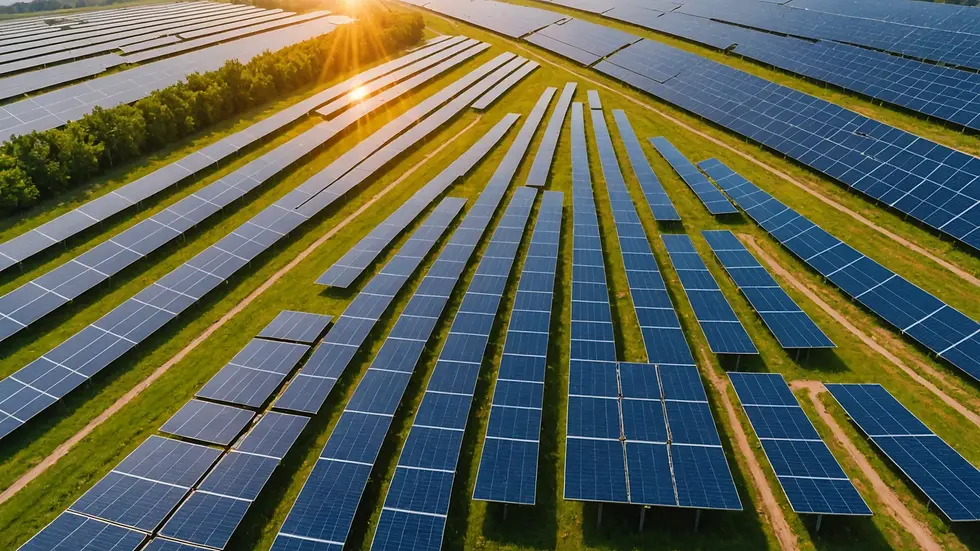Do Solar Companies Really Need Your Utility Bill to Assess Your Solar Potential Savings?
- tmillan2012

- Jan 2, 2025
- 3 min read
As more homeowners consider switching to solar power, they often face questions about the process. One key request from solar companies is for recent utility bills. Why do they need this information? Does sharing a utility bill mean you are committing to buying a solar system? Let’s examine these questions and clarify the role of utility bills in the solar assessment process.
Understanding the Role of Utility Bills in Solar Assessments
Utility bills are essential for solar companies. They provide crucial insights into a homeowner's energy use, which helps estimate solar production potential.
By reviewing utility bills, companies can determine how much electricity a household consumes monthly and yearly. For example, if a home consistently uses 800 kWh each month, the solar provider can design a system that meets this specific need. This tailored approach increases efficiency.
Additionally, these bills show seasonal variations. Energy use can change with the weather, such as increased usage in summer months for air conditioning. Understanding this variability allows solar installers to set realistic expectations for savings. According to a study from the National Renewable Energy Laboratory, solar panel efficiency can increase by up to 30% with optimal installation based on energy consumption patterns.

Solar Incentives and Financial Calculations
Utility bills also play a significant role in calculating potential savings and return on investment (ROI) for solar installations. Homeowners want to understand their long-term savings. By analyzing historical usage data from the bills, solar companies can provide clear projections.
In many states, solar incentives and rebates can significantly lower installation costs. For instance, in California, homeowners can receive rebates of up to $1,000 depending on their energy usage and the size of their solar system. To qualify for these programs, solar companies often need utility bill information to confirm compliance and the homeowner's energy usage.
This financial analysis empowers homeowners to make smart decisions about their solar investments.
Privacy Concerns: Is There an Obligation?
A common concern among homeowners is whether submitting utility bills commits them to a purchase. The answer is simple: no, providing a utility bill does not mean you must buy a solar system.
When you share your utility bills, you allow solar companies to assess your energy needs without entering a contract. Think of it like asking for quotes for a home improvement project; you're just gathering information.

The Importance of Thorough Assessments
An accurate solar potential assessment can lead to substantial savings. Providing precise information allows solar companies to customize systems uniquely suited to each home.
The assessment process includes factors like roof orientation, shading from trees or nearby buildings, and local weather conditions. For instance, a home shaded by large trees may need a different solar configuration than one with full sun exposure. When combined with utility data, these factors create a detailed picture of a homeowner's energy landscape.
A comprehensive approach enhances the efficiency of the solar system, maximizing savings and encouraging sustainable energy use.
What Homeowners Should Consider
When a solar company requests utility bills, homeowners should keep a few key points in mind:
Understanding Benefits: Realize that sharing utility bills can lead to solar solutions optimized for savings and performance, making it a worthwhile exchange.
Transparency and Ethics: Choose a company that prioritizes clarity about how your data will be used. Ethical providers will explain their practices to ensure privacy and compliance.
Financial Implications: Evaluate the economic aspects of going solar, including usage patterns, estimated savings, and potential state or federal tax incentives.

Final Thoughts
In conclusion, solar companies need utility bills to assess a homeowner's energy potential and provide customized solar solutions. However, sharing this information does not mean you must install a system.
Understanding this process gives homeowners the confidence to explore solar energy benefits without pressure. The ultimate aim is to create an energy solution tailored to individual needs, maximizing efficiency and savings.
With the right information, homeowners can take the first step toward sustainable energy, transforming their energy usage while contributing to renewable energy progress.





Comments